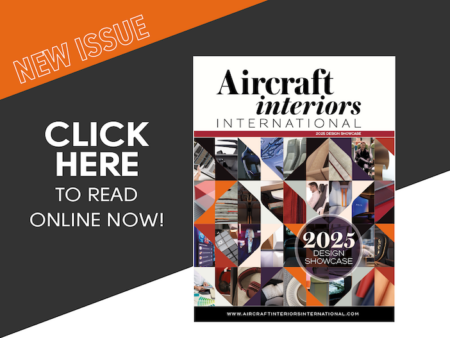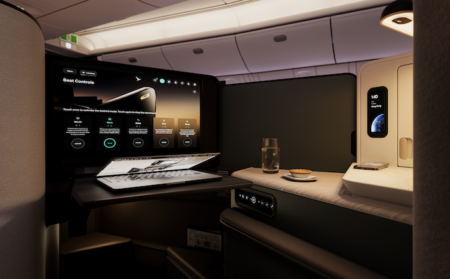March 14, 2017 – A UK technology startup has created what it claims to be the world’s first real-time detector of poisonous compounds in aircraft cabins, particularly those associated with “fume events” or “aerotoxic syndrome”. The announcement of the hand-held detector by VN Aerotoxic Detection Solutions (VN-ADS) follows two years of R&D, scientific peer reviews and proof-of-detection demonstrations to aviation industry experts, and the next step is field-testing on commercial flights.
VN-ADS’ technical director, Professor Jeremy Ramsden explained, “For decades there have been claims of toxic fume events aboard the world’s leading passenger aircraft. It isn’t something the industry likes to talk about, but there’s been increasing media coverage in recent years as evidence grows of links between the events and serious ill health, cited in inquests following the deaths of two pilots and an ongoing inquest into the 2014 death of a BA cabin steward.”
Unite, the UK union, is presently representing 74 cabin crew in cases involving BA, Virgin Atlantic, easyJet and Jet2, while the Sunday Times recently reported leaked figures showing at least 292 incidents of fumes or smoke inside aircraft operated by British carriers between June 2014 and May 2015.
Professor Ramsden continued, “Airlines and aircraft manufacturers, including Airbus and Boeing, are playing down these events, while the UK’s Civil Aviation Authority (CAA) is reported as asserting that cabin air is safe, with no evidence of long-term health effects. Aircraft certification standards stipulate that ‘crew and passenger compartment air must be free from harmful or hazardous concentrations of gases or vapors’ but there’s no real-time instrumental monitoring of aircraft cabin air to ensure this actually happens.
“The reason for lack of monitoring is that, until now, there has been no on-board device capable of doing it. The VN-ADS detector is such a device. It is a gamechanger, designed as a hand-held and complying with all on-board aviation safety standards. We’re now offering it for field testing to pilots and cabin crew across the world.”





